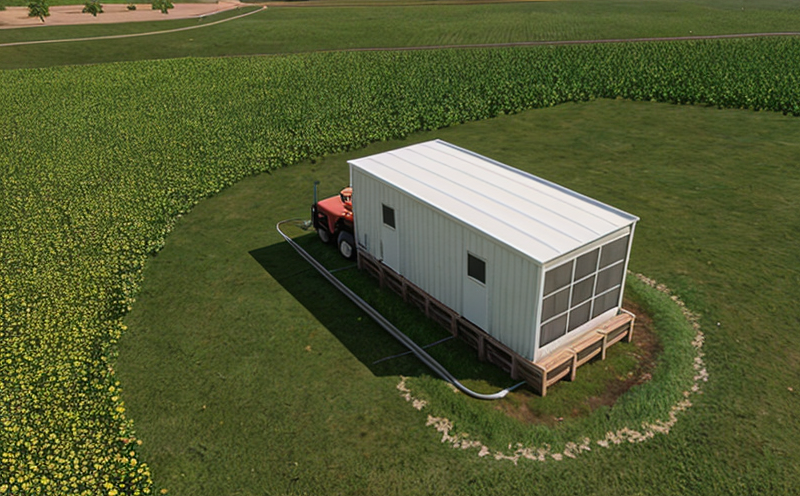EN 60068-2-1 Cold Temperature Simulation Testing
The EN 60068-2-1 standard is widely recognized in the railway and transportation sectors for its stringent requirements on environmental simulation testing. This service focuses specifically on cold temperature simulations, a critical aspect of ensuring robustness and reliability under extreme conditions.
The test aims to replicate the harsh environments that equipment and components might encounter during their lifecycle. This includes prolonged exposure to low temperatures in various geographical regions where railway operations are conducted. The standard covers the entire range from laboratory testing to real-world application, providing a comprehensive approach to quality assurance.
Under this service, we offer specialized facilities equipped with state-of-the-art equipment that can precisely control and maintain cold environments down to -40°C or even lower if required by specific client needs. These controlled conditions are crucial for understanding the performance limits of materials and components under freezing temperatures.
The process begins with meticulous specimen preparation, ensuring that each item being tested accurately represents its intended application in the field. Rigorous adherence to ISO and other relevant standards guarantees reliability and validity of test results. The testing parameters are meticulously controlled and monitored throughout the entire process.
The acceptance criteria involve detailed observations on how specimens respond under cold conditions, including changes in electrical resistance, mechanical integrity, dimensional stability, and other performance metrics specific to each component type. Our laboratory adheres strictly to these standards, providing clients with accurate and actionable insights into their product’s suitability for various climates.
Our services extend beyond mere testing; we also offer comprehensive reporting tailored to meet client requirements. This includes detailed reports highlighting the results of cold temperature simulations alongside recommendations for improvement where necessary. By leveraging advanced analytical techniques, our team ensures that every aspect of your product undergoes thorough examination under simulated freezing conditions.
The importance of this service cannot be overstated, especially within sectors like railways and transportation, which operate across diverse climates globally. Ensuring products can withstand extreme cold not only enhances their durability but also contributes significantly to overall safety and efficiency in operation.
Why It Matters
The significance of EN 60068-2-1 Cold Temperature Simulation Testing extends far beyond mere compliance; it plays a pivotal role in safeguarding both human life and infrastructure integrity. In the railway sector, for instance, equipment subjected to severe winter conditions must perform reliably without fail.
Failure rates due to cold exposure can lead to costly disruptions, delays, or even accidents if not adequately addressed during design and manufacturing phases. By incorporating this testing into your quality assurance protocol, you ensure that all components meet stringent performance standards under freezing temperatures.
This service also contributes significantly towards sustainability goals by promoting the use of materials and designs that are resilient against environmental stressors. It fosters innovation through continuous improvement practices aimed at enhancing product resilience without compromising on functionality or safety.
Moreover, compliance with international standards like EN 60068-2-1 not only enhances your company’s reputation but also opens up new market opportunities across regions where similar climatic challenges are prevalent. It demonstrates a commitment to excellence and reliability that resonates positively among customers and stakeholders alike.
Environmental and Sustainability Contributions
The railway sector faces unique environmental challenges, particularly when it comes to cold climates. Ensuring robustness against freezing conditions is not just about product performance; it’s a critical aspect of sustainable transportation infrastructure development.
Cold temperature simulation testing helps in minimizing operational disruptions caused by inclement weather, thereby reducing carbon emissions associated with frequent maintenance and repair activities. By enhancing the durability of railway equipment through thorough pre-deployment testing, we contribute towards more efficient use of resources and energy savings.
The service also promotes responsible resource management practices throughout product lifecycle stages – from raw material sourcing to end-of-life disposal. Our commitment to sustainability aligns with broader industry trends toward greener technologies and processes.
Use Cases and Application Examples
| Use Case | Application Example |
|---|---|
| Detection of material fatigue due to cold exposure | Testing brake systems for durability in Arctic regions. |
| Evaluation of electrical insulation integrity under freezing conditions | Assessing overhead power lines designed for use in Siberia. |
| Analysis of thermal shock resistance of electronic components | Checking signal transmitters used in high-speed trains operating near Nordic countries. |
| Determination of moisture resistance performance levels | Evaluating wheel bearings for sub-zero temperature resilience in Canadian rail networks. |
| Use Case | Application Example |
|---|---|
| Evaluation of paint adhesion under extreme cold | Testing protective coatings on carriages intended for use in Alaska. |
| Determination of lubricant freezing point for moving parts | Assessing greases used in bearings of locomotives operating in central Asia. |
| Analysis of adhesion properties between metal and plastic components | Evaluating coupling mechanisms designed for use in the Canadian rail system. |
| Determination of impact resistance under low temperature conditions | Testing windscreen wipers used on passenger trains traveling through northern Europe. |





